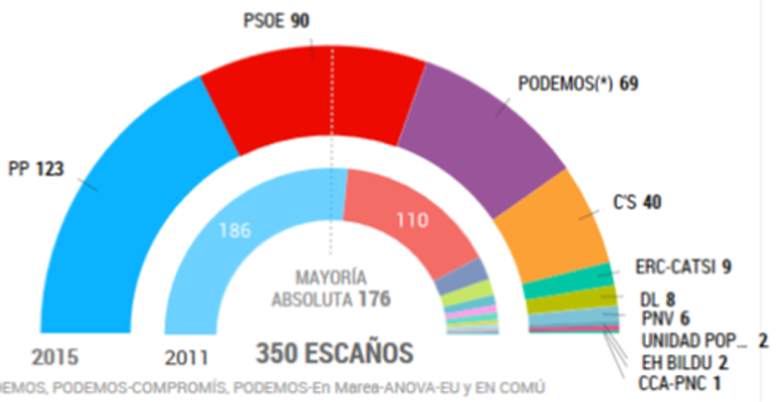• PP & PSOE both fall far short of 176-seat needed for absolute majority
• Podemos surge nets 69 seats, Ciudadanos falters to net just 40 seats
The loss of an historic 63 parliamentary seats in Spain’s Dec. 20th general elections wrenched the absolute majority grip on power from the hands of the conservative ruling Partido Popular (PP) on Sunday, giving it just 123 seats of the 176 majority needed to control the Congress of Deputies and form a new government, whether alone or in potential coalition with the 40 seats won by the county’s new centre-right Ciudadanos party.
The big winner on Sunday was Spain’s anti-austerity new-left Podemos party, which increased its seats in Spain’s Congress of Deputies from just four prior to the elections to a total of 69, placing it third behind the left’s mainstay opposition Socialist party (PSOE). In a showing that not only failed to match pre-election polling expectations but was its worst electoral outing in history, the PSOE won just 90 seats and likewise fell far short of the 176-seat majority needed to form a new government, even in combination with Podemos and other parties on the left.
PSOE party leader Pedro Sánchez acknowledge in a speech to supporters on Sunday night that PP leader and acting Prime Minister Mariano Rajoy had the first right to attempt to form a new coalition government. If Rajoy cannot gather the requisite votes in coalition, it will be up to the PSOE to try to put together a coalition of parties. If neither party is able to form a new government within 60 days, Rajoy must call for a new round of elections in early 2016.
Here are four takes in English on the election outcome and what’s in store, from:


